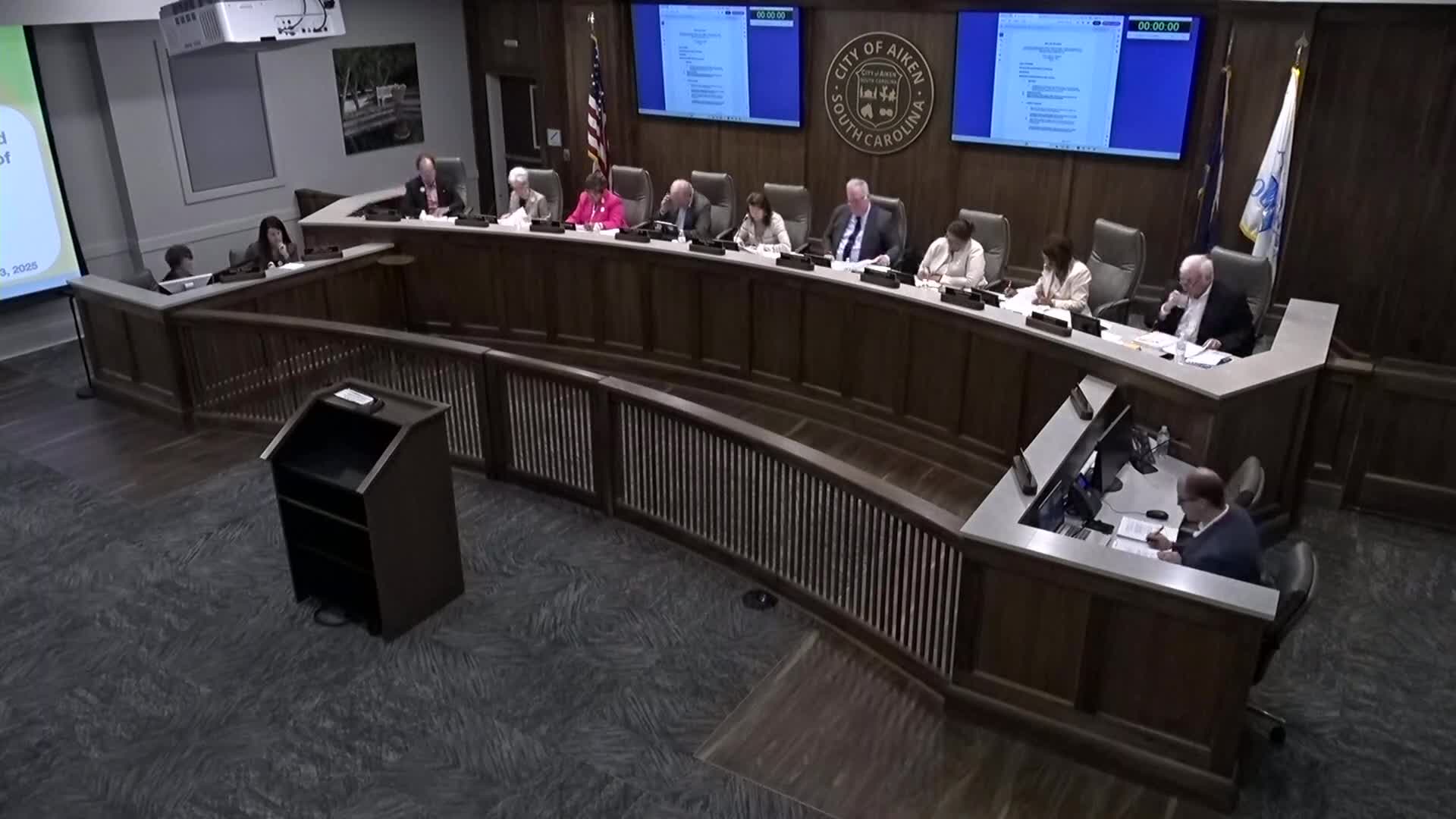Council certifies former Farmers & Merchants Bank building as textile mill site to allow state tax credits
Get AI-powered insights, summaries, and transcripts
Subscribe
Summary
The Aiken City Council approved second reading to certify the former Farmers and Merchants Bank building on Lawrence Street as a textile mill site under the South Carolina Textile Communities Revitalization Act, enabling the owner or developer to pursue state income tax credits for an adaptive reuse project proposed as an 80-room hotel.
The Aiken City Council on Oct. 13 gave second reading and approved an ordinance to certify the former Farmers and Merchants Bank building on the 100 block of Lawrence Street Southwest as a textile mill site under the South Carolina Textile Communities Revitalization Act (Title 12, Chapter 65 of the South Carolina Code of Laws of 1976, as amended).
City staff said the certification would allow the building’s owner or a developer to qualify for state income tax credits intended to encourage adaptive reuse of properties with textile-related histories. The applicant proposes to rehabilitate the building into an 80-room hotel; the city’s design-review board approved renovation plans in January.
Staff noted supporting documentation from the Lower Savannah Council of Governments and said the census tract that contains the building had been identified by the COG as an economic-distress area, which can broaden eligibility under the state act. City staff summarized historical evidence including accounts that the site served as a cotton platform where bales were sold and distributed, and said the applicant provided supporting records and attorney communications.
Council discussion was supportive. Multiple council members and members of the public praised the project’s history and its potential to add vitality to downtown.
Action taken
Councilwoman Price moved to approve the ordinance certifying the site and the motion was seconded by Councilwoman Diggs. The measure passed unanimously.
Why it matters
Certification under the Textile Communities Revitalization Act makes state tax credits available to qualifying adaptive-reuse projects and can improve the financial feasibility of rehabilitating historic commercial buildings. Staff emphasized that certification is limited to the site’s historic use and that the credits are administered under state statute.
Context and next steps
If the owner or a developer chooses to claim the tax credits, they must follow state application and compliance procedures under the Textile Communities Revitalization Act and meet any state documentation requirements. Design-review board approval for the renovation has already been recorded; state certification is a separate eligibility step for tax credits, not a city funding commitment.
